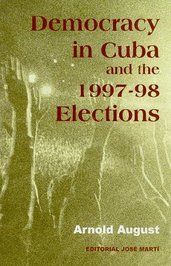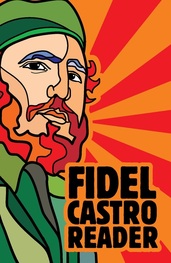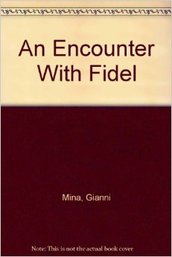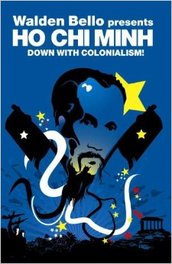The war in Vietnam was a US imperialist and colonialist war that failed, unable to defeat a united popular movement that combined nationalism and socialism.
The Vietnamese anti-colonial revolution began in the early twentieth century, with petty bourgeois intellectuals playing the leading role. Ho Chi Minh was born in 1890 and was a product of this anti-colonial intellectual environment. He arrived in Paris in 1917, where he lived for several years and was active in the Vietnamese émigré community and in the struggle against colonialism. Ho also became active in the French Socialist Party in Paris. In the split between social democracy and communism, Ho sided with the communists, as a result of Lenin’s sensitivity to the oppression of the colonized peoples. He traveled and studied in the Soviet Union in 1923 and 1924.
Ho was critical of the communist parties of the West for lacking contact with the colonized peoples and for ignoring the colonial question, thus not following in practice the theoretical formulations of Lenin on the national question. He believed that the international proletarian movement could not attain success without alliance with the colonized peoples, which he viewed as constituting a considerable force of revolutionary opposition to the structures of world capitalism. At the same time, he understood that Third World nationalism without communism would not liberate the colonized peasant. And he understood that the peasantry, while possessing an orientation toward spontaneous rebellion, was unaware of communism, and that the peasants needed organization and leadership in order to form an effective struggle. He thus saw the need to educate Western workers and the Western communist parties on the importance of encounter and alliance with the anti-colonial struggles in the colonies, and at the same time he recognized the need for the spreading of communism among the peasants, workers, students, intellectuals, and merchants of the colonies. Thus Ho developed a practical synthesis of Marxism-Leninism and a Third World perspective.
During the 1930s, Ho emerged as the charismatic leader of the Vietnamese movement for independence, which by the end of World War II had attained de facto control of the country. On September 2, 1945, before a crowd of one-half million people, continually shouting “independence,” in Ba Dinh square in Hanoi, Ho Chi Minh read the Declaration of Independence of the Democratic Republic of Vietnam. The French tried to reconquer the country, but they were defeated by 1954, setting the stage for the continually escalating US intervention in defnense of the world-system. Both the French and the United States tried to support puppet and regional governments as alternatives to the Democratic Republic of Vietnam.
US intervention was justified with the ideology of anti-communism. The nationalist and anti-colonial character of the Vietnamese Revolution was ignored, and emphasis was given to its Marxist-Leninist side. And a distorted image of communism was presented, portraying it as a movement that seeks to eliminate democracy, rather than as a movement that seeks to replace bourgeois structures of democracy with alternative structures of popular democracy.
But a neocolonial project is unsustainable in the face of a politically and theoretically advanced nationalist movement. The various puppet governments lacked legitimacy among the people, necessitating greater US military and financial support. Increasing US military presence further undermined the legitimacy of the puppet government, completely de-legitimating its claim to represent an independent nationalist force in Vietnam. Trapped in a vicious cycle of self-defeating military escalation, US policymakers had forgotten an insight relevant to their project of world domination: neocolonialism requires the appearance of independence.
The failure of the US imperialist war in Vietnam had a profound effect on the United States. Among other effects, it stimulated an analysis among the people of the causes for the failure, leading to increased popular consciousness of the imperialist character of US foreign policy. The emergence of anti-imperialism in the African-American movement and the student anti-war movement will be discussed in future posts.
Bibliography
García Oliveras, Julio A. 2010. Ho Chi Minh El Patriota: 60 años de lucha revolucionaria. La Habana: Editorial de Ciencias Sociales.
Ho Chi Minh. 2007. Down with Colonialism. Introduction by Walden Bello. London: Verso.
McNamara, Robert S., with Brian VanDeMark. 1996. In Retrospect: The Tragedy and Lessons of Vietnam. New York: Random House, Vintage Books.
Prina, Agustín. 2008. La Guerra de Vietnam. Mexico: Ocean Sur.
Key words: Third World, revolution, colonialism, neocolonialism, imperialism, democracy, national liberation, sovereignty, self-determination, socialism, Marxism, Leninism, Cuba, Latin America, world-system, world-economy, development, underdevelopment, colonial, neocolonial, blog Third World perspective, Vietnam, Ho Chi Minh
The Vietnamese anti-colonial revolution began in the early twentieth century, with petty bourgeois intellectuals playing the leading role. Ho Chi Minh was born in 1890 and was a product of this anti-colonial intellectual environment. He arrived in Paris in 1917, where he lived for several years and was active in the Vietnamese émigré community and in the struggle against colonialism. Ho also became active in the French Socialist Party in Paris. In the split between social democracy and communism, Ho sided with the communists, as a result of Lenin’s sensitivity to the oppression of the colonized peoples. He traveled and studied in the Soviet Union in 1923 and 1924.
Ho was critical of the communist parties of the West for lacking contact with the colonized peoples and for ignoring the colonial question, thus not following in practice the theoretical formulations of Lenin on the national question. He believed that the international proletarian movement could not attain success without alliance with the colonized peoples, which he viewed as constituting a considerable force of revolutionary opposition to the structures of world capitalism. At the same time, he understood that Third World nationalism without communism would not liberate the colonized peasant. And he understood that the peasantry, while possessing an orientation toward spontaneous rebellion, was unaware of communism, and that the peasants needed organization and leadership in order to form an effective struggle. He thus saw the need to educate Western workers and the Western communist parties on the importance of encounter and alliance with the anti-colonial struggles in the colonies, and at the same time he recognized the need for the spreading of communism among the peasants, workers, students, intellectuals, and merchants of the colonies. Thus Ho developed a practical synthesis of Marxism-Leninism and a Third World perspective.
During the 1930s, Ho emerged as the charismatic leader of the Vietnamese movement for independence, which by the end of World War II had attained de facto control of the country. On September 2, 1945, before a crowd of one-half million people, continually shouting “independence,” in Ba Dinh square in Hanoi, Ho Chi Minh read the Declaration of Independence of the Democratic Republic of Vietnam. The French tried to reconquer the country, but they were defeated by 1954, setting the stage for the continually escalating US intervention in defnense of the world-system. Both the French and the United States tried to support puppet and regional governments as alternatives to the Democratic Republic of Vietnam.
US intervention was justified with the ideology of anti-communism. The nationalist and anti-colonial character of the Vietnamese Revolution was ignored, and emphasis was given to its Marxist-Leninist side. And a distorted image of communism was presented, portraying it as a movement that seeks to eliminate democracy, rather than as a movement that seeks to replace bourgeois structures of democracy with alternative structures of popular democracy.
But a neocolonial project is unsustainable in the face of a politically and theoretically advanced nationalist movement. The various puppet governments lacked legitimacy among the people, necessitating greater US military and financial support. Increasing US military presence further undermined the legitimacy of the puppet government, completely de-legitimating its claim to represent an independent nationalist force in Vietnam. Trapped in a vicious cycle of self-defeating military escalation, US policymakers had forgotten an insight relevant to their project of world domination: neocolonialism requires the appearance of independence.
The failure of the US imperialist war in Vietnam had a profound effect on the United States. Among other effects, it stimulated an analysis among the people of the causes for the failure, leading to increased popular consciousness of the imperialist character of US foreign policy. The emergence of anti-imperialism in the African-American movement and the student anti-war movement will be discussed in future posts.
Bibliography
García Oliveras, Julio A. 2010. Ho Chi Minh El Patriota: 60 años de lucha revolucionaria. La Habana: Editorial de Ciencias Sociales.
Ho Chi Minh. 2007. Down with Colonialism. Introduction by Walden Bello. London: Verso.
McNamara, Robert S., with Brian VanDeMark. 1996. In Retrospect: The Tragedy and Lessons of Vietnam. New York: Random House, Vintage Books.
Prina, Agustín. 2008. La Guerra de Vietnam. Mexico: Ocean Sur.
Key words: Third World, revolution, colonialism, neocolonialism, imperialism, democracy, national liberation, sovereignty, self-determination, socialism, Marxism, Leninism, Cuba, Latin America, world-system, world-economy, development, underdevelopment, colonial, neocolonial, blog Third World perspective, Vietnam, Ho Chi Minh


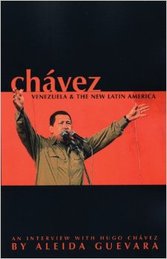
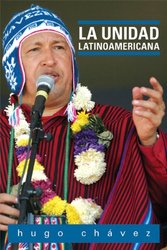
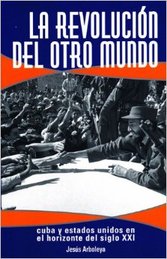
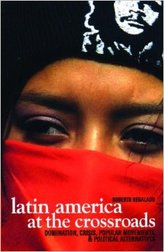

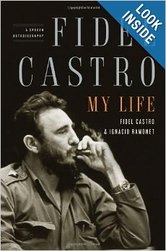
 RSS Feed
RSS Feed

